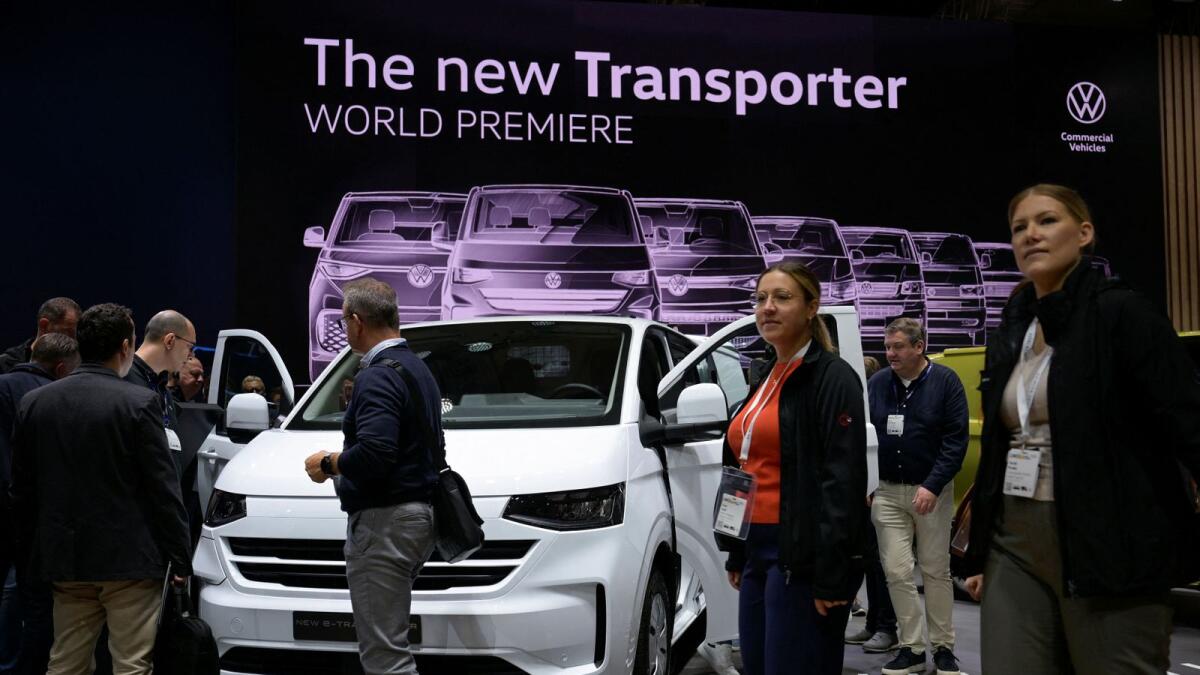Germany’s government is considering ways to support Volkswagen amidst the threat of job cuts at the country’s largest carmaker. The German economy minister and vice-chancellor Robert Habeck stated that Volkswagen needed to cut costs significantly at its namesake brand in Germany due to high costs, low productivity, and fierce competition. Habeck emphasized the central importance of Volkswagen to Germany and mentioned plans to visit a VW plant in the city of Emden on Friday. Despite reports suggesting a potential 30,000 job cuts within the group’s German workforce, a Volkswagen spokesperson dismissed these claims as baseless.
Amidst the uncertainty surrounding potential job cuts at Volkswagen, management and unions are preparing to start negotiations next week on replacing long-standing wage agreements that Volkswagen recently cancelled. This move by Volkswagen to cancel wage agreements and threaten plant closures in Germany for the first time in history has caused concern among the workforce. However, the spokesperson for the carmaker’s works council dismissed reports of a drastic reduction in the workforce, stating that these claims have no basis and are simply nonsense.
The Volkswagen Group’s German workforce plays a crucial role in the country’s economy, and any significant job cuts could have a ripple effect on the overall economic landscape. With Volkswagen being a major player in the automotive industry, the government is exploring ways to provide support to ensure the sustainability of the company and to protect jobs in the region. The potential job cuts at Volkswagen come at a time when the automotive industry is going through significant challenges, including the shift towards electrification and increasing competition in the market.
As Volkswagen navigates through these uncertain times, there is a growing need for collaboration between management, unions, and the government to find sustainable solutions that benefit all stakeholders. The negotiations between management and unions will be crucial in determining the future of Volkswagen’s workforce and the overall stability of the company. It is essential for all parties involved to work together towards a common goal of ensuring the long-term success and viability of Volkswagen in Germany and beyond.
The automotive industry is undergoing a period of transformation, with electric vehicles gaining prominence and environmental concerns driving changes in consumer preferences. Volkswagen’s move towards electric vans, such as the fully electric Transporter showcased at the IAA truck show in Hanover, highlights the company’s commitment to sustainability and innovation. As Volkswagen continues to adapt to changing market demands, it is essential for the company to find a balance between cost-cutting measures and investments in future technologies to remain competitive in the industry.
In conclusion, the discussions around potential job cuts at Volkswagen underscore the challenges facing the automotive industry and the importance of proactive measures to ensure the sustainability of companies like Volkswagen. As the negotiations between management and unions unfold, it is vital for all stakeholders to work together towards a common goal of securing the future of Volkswagen and safeguarding jobs in Germany. By finding a balance between cost-cutting initiatives and investments in innovation, Volkswagen can position itself for long-term success in a rapidly evolving automotive landscape.











